
About Carnitine Q10 - Gensan
Food supplement of L-carnitine and Beta Alanine.
FORMAT
Container of 60 capsules
COMPOSITION
L carnitine Tartrate: salified form with tartaric acid.
Coenzyme Q10
Beta alanine
Chrome orotate
Capsule: Food gelatin
Dyes: E172, E127, E 171
One serving contains:
L-Carnitine 200 mg - trimethylated amino acid derivative, mainly synthesized in the liver and kidney from two essential amino acids, such as methionine and lysine. This molecule is able to bind long-chain fatty acids and transport them, through a membrane transporter, into the mitochondrial matrix, where they undergo the oxidative process with energy production.

During physical exercise carried out at 50 - 60% of VO2 max, fatty acids represent the main energy substrate to support performance; however, the physiological reduction in the levels of non-esterified muscle carnitine, which occurs during the exercise itself , significantly affects the maintenance of the oxidative, and therefore aerobic, capacities of the muscle subjected to stress, favoring the increase in glucose metabolism which in turn further inhibits lipid oxidation (reducing the activity of the transporter for acyl carnitine) and causing a reduction of the aerobic treshould. A muscle well supplied with carnitine could therefore better support lipid oxidation, saving muscle glycogen as an energy source. This, however, represents the limiting stage of supplementation with carnitine, as the increase in its concentration in the blood - produced by taking the supplement - it is not accompanied by a significant increase in the concentration of muscle carnitine, therefore it does not correspond to a real benefit in physiological terms, given that the biological function of carnitine is carried out precisely at the muscle level.
Coenzyme Q10 20 mg- also known as ubiquinone, it plays a key role in the red-ox processes inside the cell, also allowing the transport of electrons through the respiratory chain, with consequent production of energy in the presence of oxygen. Partly synthesized endogenously, and partly assumed through cereals, soy, vegetables and nuts, given its lipophilicity, it can be easily absorbed in the gastrointestinal tract following a meal rich in lipids and spread equally easily between cell membranes. It is found in various tissues, but mainly in those characterized from an important oxidative metabolism, such as muscles and in particular the heart. Its strong antioxidant and protective properties against the oxidative insult affecting the various biological structures, and its deficiencies observed in aging and in various diseases such as cardiovascular, neuronal and metabolic, make coenzyme Q10 one of the most studied and characterized antioxidants in therapeutic treatment. Numerous studies, in fact, show the benefit obtained - following supplementation - on the reduction of oxidative stress in various pathologies, and in particular in cardiovascular ones.
Given its strong antioxidant role, coenzyme Q10 has also been tested as a sports supplement, achieving - scientifically speaking - a good success. Numerous studies conducted on both professional athletes and amateur sportsmen have shown how the supplementation of coenzyme Q10, generally for at least 2 weeks at doses between 100mg - 300mg, has guaranteed a reduction in post-workout fatigue sensation, a reduction in markers. blood oxidants, an increase in average strength and a reduction in markers of muscle damage induced by intense physical activity (such as myoglobin and creatinkinase).
Its requirement is about 5mg / day, but it must be considered that this increases up to 50mg / day after 35 years.
Beta Alanine 150 mg - together with L-histidine it is part of the carnosine synthesis by carnosine synthase, representing the limiting factor. The oral intake of this amino acid, in fact, seems to increase the muscle stocks of carnosine by 80%, particularly concentrated in the contraction fibers quick.This dipeptide acts as a buffer of the acidosis that occurs following lactic fermentation during intense physical exertion, and as an antioxidant, proving effective in reducing the sensation of fatigue and improving athletic performance. Studies instead show contradictory data regarding the ability to increase muscle strength or improve body composition, while several studies show an important synergy with creatine.
The doses used in the studies, generally, are around 4 - 6 gr / day, for about 4 weeks, divided into several doses during the day. However, already at single doses above 800mg, phenomena of paresthesia (tingling) are documented, which resolve quickly.
Side effects are dose dependent.
Chromium orotate 200 mcg: chromium linked to orotic acid, which assuming characteristics of the organic molecule can be absorbed more easily. This element has proved to be very important especially in regulating glucose metabolism, re-entering the synthesis of the glucose tolerance factor. It has also proved effective in improving glucose metabolism. "insulin activity in patients with type II diabetes, normalizing blood glucose levels and reducing the risk of onset of associated diseases. On the other hand, recent studies on chromium supplementation at 200 mcg for several weeks, in sports practice, seem to be disappointing. In fact, there were no improvements in the synthesis and accumulation of muscle glycogen, in strength, in athletic performance and in the improvement of glucose metabolism during training. His daily requirement is estimated at around 50mcg, even if studies related to sports supplementation do not record daily doses below 200mcg.
Characteristics of the product Carnitine Q10 - Gensan
This carnitine supplement comes in the form of capsules, with the maximum dosage required by law. In addition to L-carnitine tartrate, the supplement provides chromium orotate at the maximum allowed dosage, Beta Alanine and Coenzyme Q10. Even if not scientifically proven, the synergy between Coenzyme Q10, Beta Alanine and L carnitine, could improve the antioxidant capacity of the organism. , and counteract the oxidative damage induced by intense exercise, also favoring the recovery phase.
Method of use recommended by the company - Carnitine Q10 - Gensan
Take one cps a day
Directions for use in sports Carnitine Q10 - Gensan
In sports, the intake of L Carnitine can follow different protocols. The most common provide for a gradual weekly rise from 500mg up to 2 / 2.5g per day, while others provide for a drop from 2.5g to 500mg per day. Higher dosages in healthy subjects they are not recommended, as the excess product would be excreted intact in the kidney.
The optimization of supplementation with L-Carnitine should include aerobic exercises, able to keep the pO2 high in the muscles, and possibly a reduction in the carbohydrate content of the diet.
However, the dosages of the various components, with the exception of chromium, appear quite low for each capsule, and only reach the levels used in the literature if the typical intake protocol for L-Carnitine is followed. However, in this case the chromium levels could be too high, reduce iron absorption and cause gastrointestinal problems.
Rationale for use - Carnitine Q10 - Gensan
The scientific literature provides several very conflicting articles, in most cases negative, regarding the terms of improvement of aerobic performance, or the increase of lipid metabolism following supplementation with carnitine in healthy individuals and athletes.
Instead, the antioxidant effects of coenzyme Q10 and beta alanine, both effective in reducing markers of oxidative damage following intense exercise, are demonstrated.
It remains clear that the doses used in the studies significantly exceed those provided by the single capsule.
Carnitine Q10 Side Effects - Gensan
At high doses, episodes of insomnia, nausea, abdominal cramps, migraines and gastrointestinal disorders, although rare, may occur.
Precautions for use Carnitine Q10 - Gensan
Contraindicated in cases of renal, hepatic, diabetic, pregnancy, lactation, mood disorders.
This article, elaborated on the critical rereading of scientific articles, university texts and common practice, is for information purposes only and therefore has no medical prescription value. It is therefore always required to consult your doctor, nutritionist or pharmacist before undertaking the use of any supplement.. Learn more about the critical analysis of Carnitine Q10 - Gensan.
J Physiol. 2007 June 1; 581 (Pt 2): 431-44
New insights concerning the role of carnitine in the regulation of fuel metabolism in skeletal muscleFrancis B Stephens, Dumitru Constantin-Teodosiu, and Paul L Greenhaff
Ann N Y Acad Sci. 2004 Nov; 1033: 30-41.
Kinetics, pharmacokinetics, and regulation of L-carnitine and acetyl-L-carnitine metabolism Rebouche CJ.
J Appl Physiol. 1988 Jun; 64: 2394-9.
Influence of carnitine supplementation on muscle substrate and carnitine metabolism during exercise. Soop MBjörkman O, Cederblad G, Hagenfeldt L, Wahren J.L-Carnitine in the treatment of fatigue in adult celiac disease patients: a pilot study.
Ciacci C, Peluso G, Iannoni E, Siniscalchi M, Iovino P, Rispo A, Tortora R, Bucci C, Zingone F, Margarucci S, Calvani M.
Oxidative stress in response to aerobic and anaerobic power testing: influence of exercise training and carnitine supplementation.
Bloomer RJ, Smith WA.
Res Sports Med. 2009 Jan-Mar; 17: 1-16.
and Sci Sports Exerc. 2006 Jul; 38: 1288-96.
Androgenic responses to resistance exercise: effects of feeding and L-carnitine.
Wraemer WJ, Spiering BA, Volek JS, Ratamess NA, Sharman MJ, Rubin MR, French DN, Silvestre R, Hatfield DL, Van Heest JL, Vingren JL, Judelson DA, Deschenes MR, Maresh CM.
J Strength Cond Res. 2008 Jul; 22: 1130-5.
Effects of L-carnitine L-tartrate supplementation on muscle oxygenation responses to resistance exercise.
Spiering BA, Kraemer WJ, Hatfield DL, Vingren JL, Fragala MS, Ho JY, Thomas GA, Häkkinen K, Volek JS.
Chromium picolinate and conjugated linoleic acid do not synergistically influence diet- and exercise-induced changes in body composition and health indexes in overweight women.
Diaz ML, Watkins BA, Li Y, Anderson RA, Campbell WW.
J Nutr Biochem. 2008 Jan; 19: 61-8. Epub 2007 May 24.
Clinical studies on chromium picolinate supplementation in diabetes mellitus - a review.
Broadhurst CL, Domenico P.
Diabetes Technol Ther. 2006 Dec; 8: 677-87. Review.
The potential value and toxicity of chromium picolinate as a nutritional supplement, weight loss agent and muscle development agent.
Vincent JB.
Sports Med. 2003; 33: 213-30. Review.
Int J Sport Nutr Exerc Metab. 2002 Jun; 12: 125-35.
Effects of resistive training and chromium picolinate on body composition and skeletal muscle size in older women.
Campbell WW, Joseph LJ, Anderson RA, Davey SL, Hinton J, Evans WJ.
Evaluation of the potential genotoxicity of chromium picolinate in mammalian cells in vivo and in vitro.
Andersson MA, Petersson Grawé KV, Karlsson OM, Abramsson-Zetterberg LA, Hellman BE.
Food Chem Toxicol. 2007 Jul; 45: 1097-106. Epub 2006 Nov 22.
A pilot study of chromium picolinate for weight loss.
Yazaki Y, Faridi Z, Ma Y, Ali A, Northrup V, Njike VY, Liberti L, Katz DL.
J Altern Complement Med. 2010 Mar; 16: 291-9.
Systematic review of effect of coenzyme Q10 in physical exercise, hypertension and heart failure.
Rosenfeldt F, Hilton D, Pepe S, Krum H. Biofactors. 2003; 18 (1-4): 91-100. Review.
The effects of coenzyme Q10 supplementation on performance during repeated bouts of supramaximal exercise in sedentary men.
Gökbel H, Gül I, Belviranl M, Okudan N. J Strength Cond Res. 2010 Jan; 24: 97-102.
Effects of acute and 14-day coenzyme Q10 supplementation on exercise performance in both trained and untrained individuals.
Cooke M, Iosia M, Buford T, Shelmadine B, Hudson G, Kerksick C, Rasmussen C, Greenwood M, Leutholtz B, Willoughby D, Kreider R.
J Int Soc Sports Nutr. 2008 Mar 4; 5: 8.
Muscle carnosine metabolism and beta-alanine supplementation in relation to exercise and training.
Derave W, Everaert I, Beeckman S, Baguet A.
Sports Med. 2010 Mar 1; 40: 247-63. doi: 10.2165 / 11530310-000000000-00000.PMID: 20199122 [PubMed - in process] Related citations
Effect of beta-alanine supplementation on muscle carnosine concentrations and exercise performance.
Salt C, Saunders B, Harris RC.
Amino Acids. 2009 Dec 20. [Epub ahead of print] PMID: 20091069 [PubMed - as supplied by publisher] Related citations
The Role of beta-alanine Supplementation on Muscle Carnosine and Exercise Performance.
Giannini Artioli G, Gualano B, Smith A, Stout J, Herbert Lancha A Junior.
Med Sci Sports Exerc. 2009 Dec 9. [Epub ahead of print] PMID: 19997023 [PubMed - as supplied by publisher] Related citations
The effect of beta-alanine supplementation on power performance during repeated sprint activity.
Sweeney KM, Wright GA, Glenn Brice A, Doberstein ST.

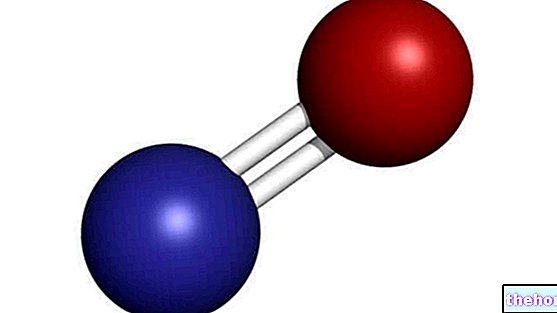
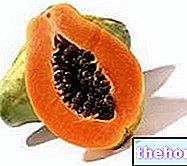

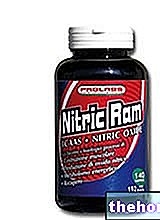
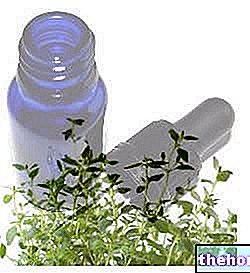
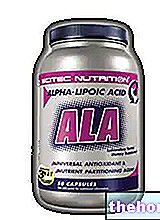









.jpg)











